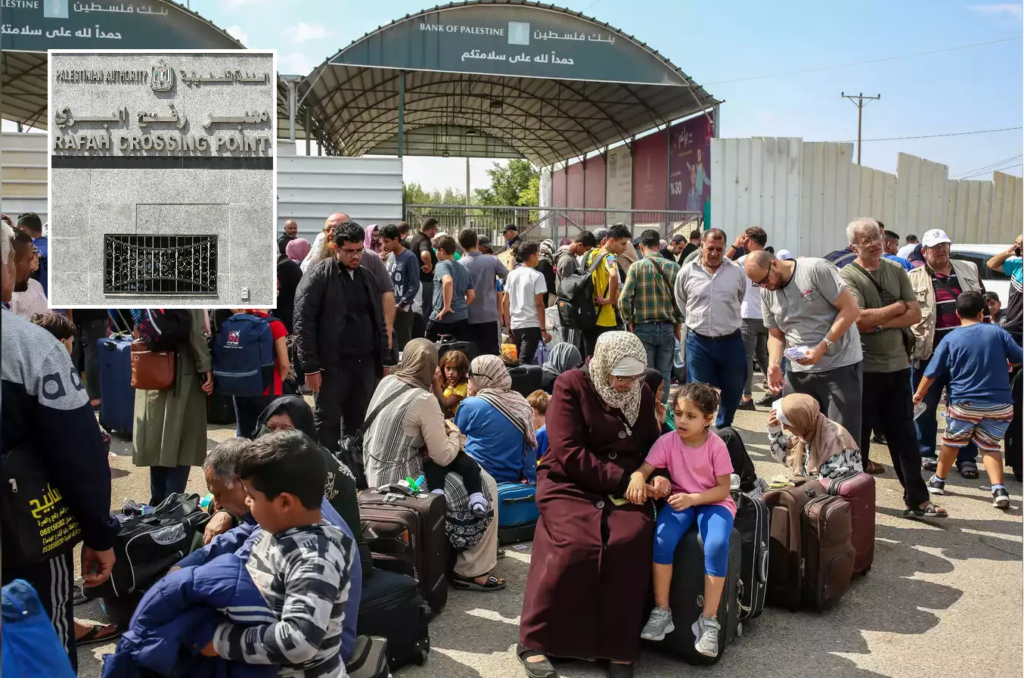
- Critics argue that Sisi’s focus on regional security comes at the expense of addressing pressing economic challenges facing Egyptians.
- Despite pressure from Western powers to force Palestinians to resettle in North Sinai, Sisi has publicly rejected such demands, emphasizing Egypt’s commitment to national security.
- Egypt’s ability to effectively mediate and address humanitarian concerns will be critical in shaping the trajectory of the conflict and the broader regional dynamics.
Amid Israel’s recent military campaign against Gaza, Egypt finds itself in a delicate position, balancing its role as a mediator between Palestinian factions and the need to maintain regional stability. As the conflict escalates, Cairo’s actions and statements are being closely scrutinized both domestically and internationally.
Over the years, Egypt has played a crucial role in mediating between Palestinian factions, including efforts to facilitate political reconciliation and the organization of elections. However, the current conflict presents a unique challenge for President Abdel Fattah al-Sisi. Despite pressure from Western powers to force Palestinians to resettle in North Sinai, Sisi has publicly rejected such demands, emphasizing Egypt’s commitment to safeguarding national security and stability in the region. This stance, while garnering support domestically, also underscores the complexity of Egypt’s relationship with Israel and its internal political dynamics.
Critics argue that Sisi’s focus on regional security comes at the expense of addressing pressing economic challenges facing Egyptians. The ongoing economic crisis has taken a toll on various social classes, leading to discontent with the government’s priorities and policies. Moreover, Egypt’s historical relationship with Israel adds another layer of complexity to its stance on the conflict. Despite maintaining diplomatic and economic relations since 1978, many Egyptians remain opposed to normalization with Israel, viewing it as a colonizer of Palestine and a former occupier of the Sinai Peninsula.
Recent reports of Egypt’s closure of the Rafah border crossing, Gaza’s only exit to the outside world, have raised concerns about the humanitarian situation in the besieged enclave. Conflicting reports about the reopening of the crossing highlight the challenges faced by Egypt in managing the flow of goods and people while balancing security concerns. Egyptian intelligence sources have warned against a mass exodus of Palestinians from Gaza, highlighting the difficult choices faced by civilians caught in the crossfire between Hamas and Israeli forces. The closure of the border crossing has further exacerbated humanitarian conditions, with aid convoys waiting to deliver essential supplies to those in need.
In addition to its mediation and intelligence-sharing efforts, Egypt has also been actively engaged in diplomatic initiatives aimed at de-escalating tensions and fostering long-term solutions to the conflict. This includes advocating for a political dialogue between the parties involved and supporting initiatives aimed at addressing the underlying grievances and root causes of the conflict. By promoting a comprehensive approach to conflict resolution, Egypt aims to create conditions conducive to lasting peace and stability in the region.
Furthermore, Cairo has been working closely with international actors and organizations to coordinate humanitarian assistance efforts for the people of Gaza. Egypt has facilitated the entry of aid convoys and medical supplies into the besieged enclave, underscoring its commitment to alleviating the suffering of civilians affected by the conflict. By serving as a conduit for international assistance, Egypt plays a critical role in addressing the urgent humanitarian needs of Gaza’s population.
Despite the challenges and complexities inherent in mediating a conflict of this magnitude, Egypt remains steadfast in its commitment to preventing further escalation and promoting regional stability. As tensions persist and the humanitarian crisis deepens, Egypt’s role as a mediator and facilitator of aid efforts will continue to be essential in navigating the path towards a peaceful resolution of the conflict.
In conclusion, Egypt’s role amid Israel’s war on Gaza reflects a delicate balancing act between mediation efforts, domestic priorities, and regional stability. President Sisi’s emphasis on national security underscores the challenges facing the Egyptian government as it navigates the complexities of the conflict. Moving forward, Egypt’s ability to effectively mediate and address humanitarian concerns will be critical in shaping the trajectory of the conflict and the broader regional dynamics.
References:
- https://thesoufancenter.org/intelbrief-2023-november-13/
- https://foreignpolicy.com/2023/10/24/israel-hamas-war-egypt-sisi-rafah-crossing-muslim-brotherhood-sinai/
